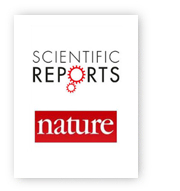Performance and antioxidant traits of broiler chickens fed with diets containing rapeseed or flaxseed oil and optimized quercetin
Kamil Sierżant; Eliza Piksa; Damian Konkol; Kamila Lewandowska; Muhammad Asghar
Scientific Reports
Ministerial score = 140.0
Journal Impact Factor (2023) = 4.6 (Q2)
 This study evaluated the effect of quercetin (Q) added to feed mixtures, at concentrations directly optimized for the peroxidability of dietary rapeseed (RO) and flaxseed oil (FLO), on performance and selected biomarkers of oxidative stress of broiler chickens. Ninety-six one-day-old Ross 308 broiler chicken males were randomly assigned to four groups (six replicates per treatment, four birds per cage, n = 24 per group): Group RO received diets containing rapeseed oil (RO) and group FLO received diets containing flaxseed oil (FLO); Group RO_Q and group FLO_Q received these same diets containing RO or FLO oils, supplemented with optimized quercetin (Q). Blood, pectoral muscles, and liver samples of chickens were collected after 35 days to determine: (1) the global indicators of antioxidant capacity: ferric reducing antioxidant power (FRAP), antiradical activity (DPPH·/ABTS·+), total antioxidant status (TAS), and glutathione peroxidase (GSH-Px); (2) the activity of the antioxidant enzymes catalase (CAT) and superoxide dismutase (SOD); and (3) the concentration of malondialdehyde (MDA). Data showed that the FLO diet did not affect the final performance parameters in relation to RO, but the optimized Q tended to improve the total body weight gain and the final body weight of broiler chickens (P = 0.10). The antioxidant traces analyzed in the blood (GSH-Px), plasma (FRAP, ABTS·+, DPPH·, TAS), serum (DPPH·), and pectoral muscles (SOD, CAT) of chickens were not altered by either Oil or Q factor. FLO supplementation increased MDA content in the liver of chickens (P < 0.05) and increased liver CAT activity, which was not improved by optimized Q. Meanwhile, the Oil × Q interaction suggests that optimized Q could reduce the liver burden and negative effects of oxidized lipid by-products associated with FLO diets. Our results indicate that optimizing the addition of natural polyphenols to feed may be a valuable alternative to the application of polyphenolic antioxidants in animal nutrition, allowing for an economical use of the antioxidant additives when customized to the peroxidability of fat sources, which is line to the conception of sustainable development covering ‘The European Green Deal’ and ‘Farm to Fork Strategy’.
This study evaluated the effect of quercetin (Q) added to feed mixtures, at concentrations directly optimized for the peroxidability of dietary rapeseed (RO) and flaxseed oil (FLO), on performance and selected biomarkers of oxidative stress of broiler chickens. Ninety-six one-day-old Ross 308 broiler chicken males were randomly assigned to four groups (six replicates per treatment, four birds per cage, n = 24 per group): Group RO received diets containing rapeseed oil (RO) and group FLO received diets containing flaxseed oil (FLO); Group RO_Q and group FLO_Q received these same diets containing RO or FLO oils, supplemented with optimized quercetin (Q). Blood, pectoral muscles, and liver samples of chickens were collected after 35 days to determine: (1) the global indicators of antioxidant capacity: ferric reducing antioxidant power (FRAP), antiradical activity (DPPH·/ABTS·+), total antioxidant status (TAS), and glutathione peroxidase (GSH-Px); (2) the activity of the antioxidant enzymes catalase (CAT) and superoxide dismutase (SOD); and (3) the concentration of malondialdehyde (MDA). Data showed that the FLO diet did not affect the final performance parameters in relation to RO, but the optimized Q tended to improve the total body weight gain and the final body weight of broiler chickens (P = 0.10). The antioxidant traces analyzed in the blood (GSH-Px), plasma (FRAP, ABTS·+, DPPH·, TAS), serum (DPPH·), and pectoral muscles (SOD, CAT) of chickens were not altered by either Oil or Q factor. FLO supplementation increased MDA content in the liver of chickens (P < 0.05) and increased liver CAT activity, which was not improved by optimized Q. Meanwhile, the Oil × Q interaction suggests that optimized Q could reduce the liver burden and negative effects of oxidized lipid by-products associated with FLO diets. Our results indicate that optimizing the addition of natural polyphenols to feed may be a valuable alternative to the application of polyphenolic antioxidants in animal nutrition, allowing for an economical use of the antioxidant additives when customized to the peroxidability of fat sources, which is line to the conception of sustainable development covering ‘The European Green Deal’ and ‘Farm to Fork Strategy’.
DOI:10.1038/s41598-023-41282-3









